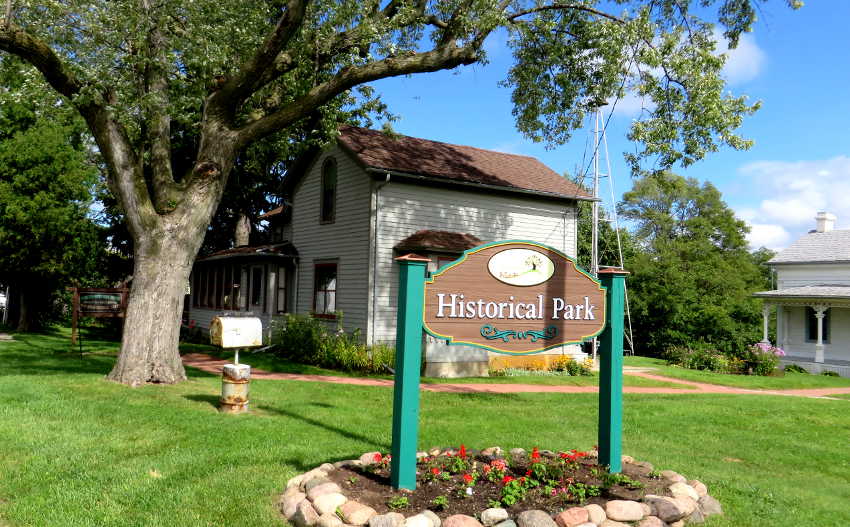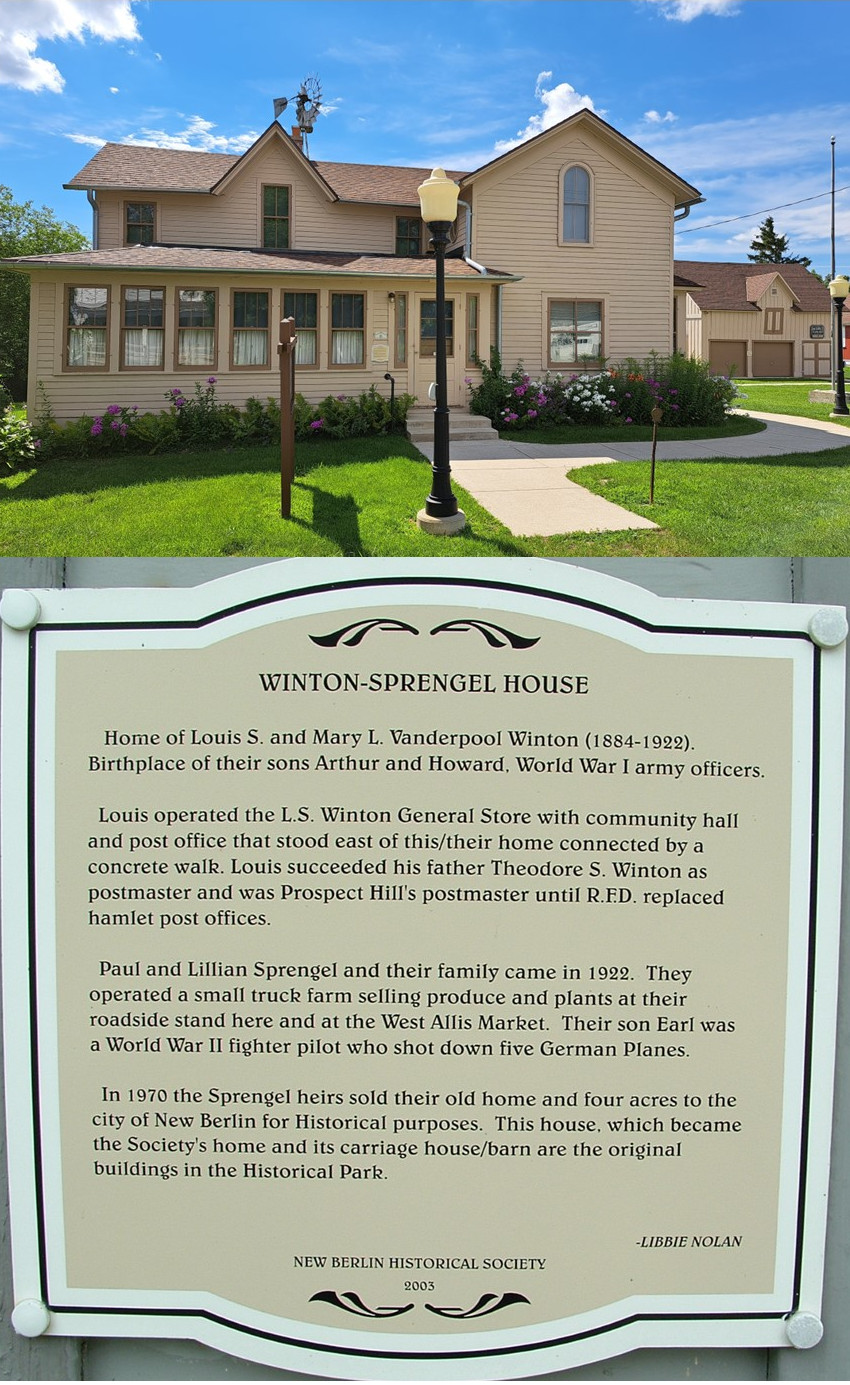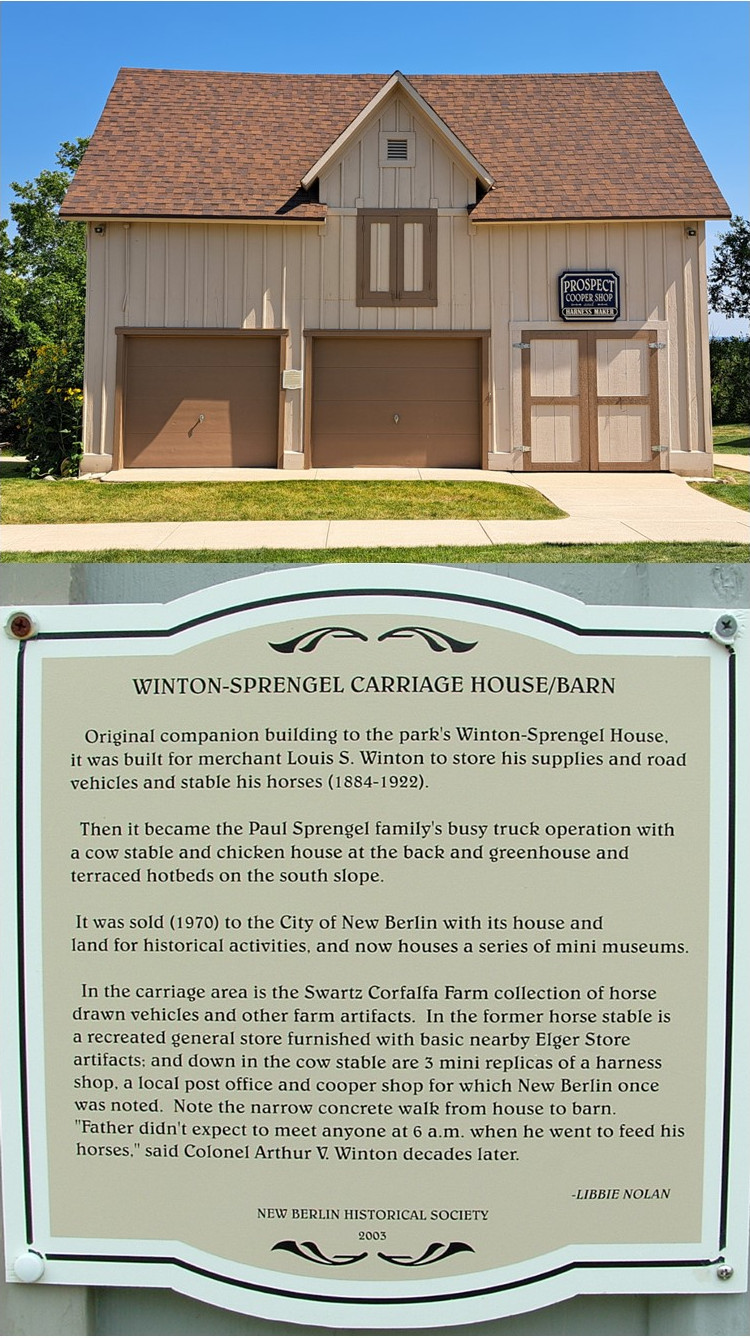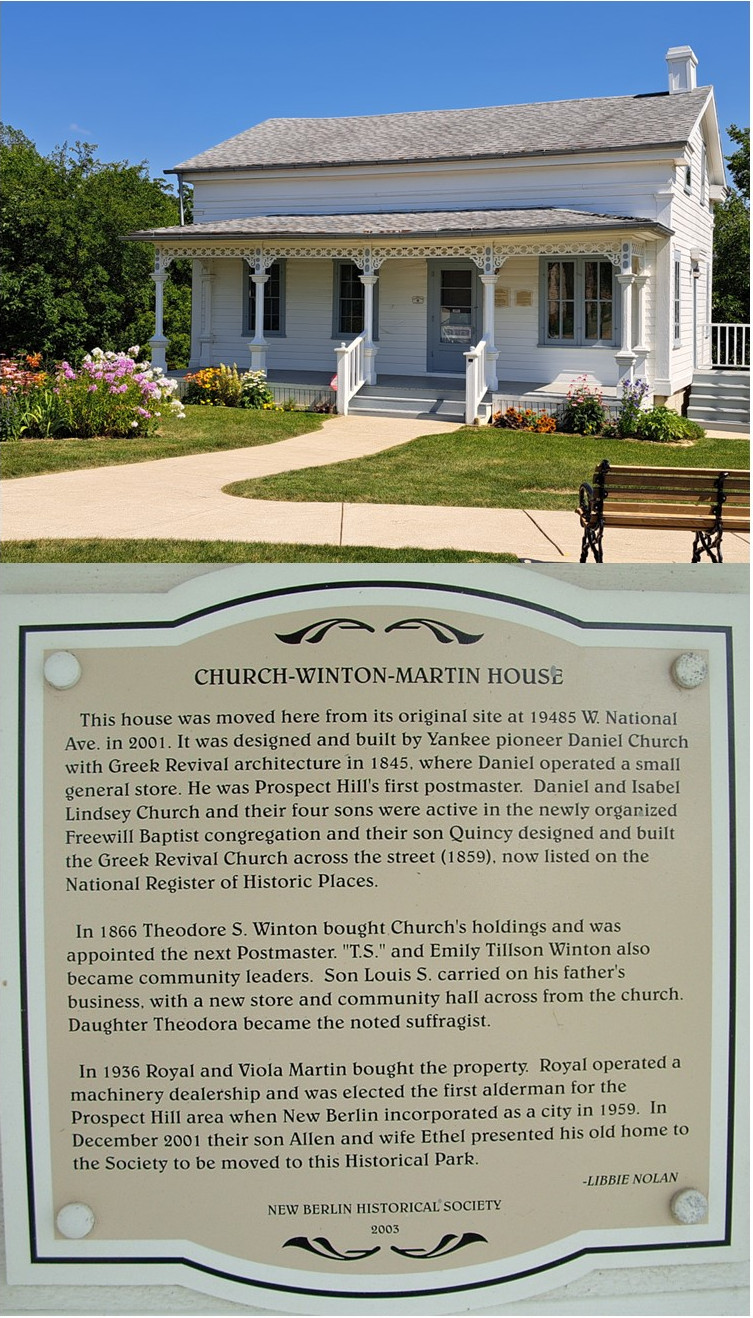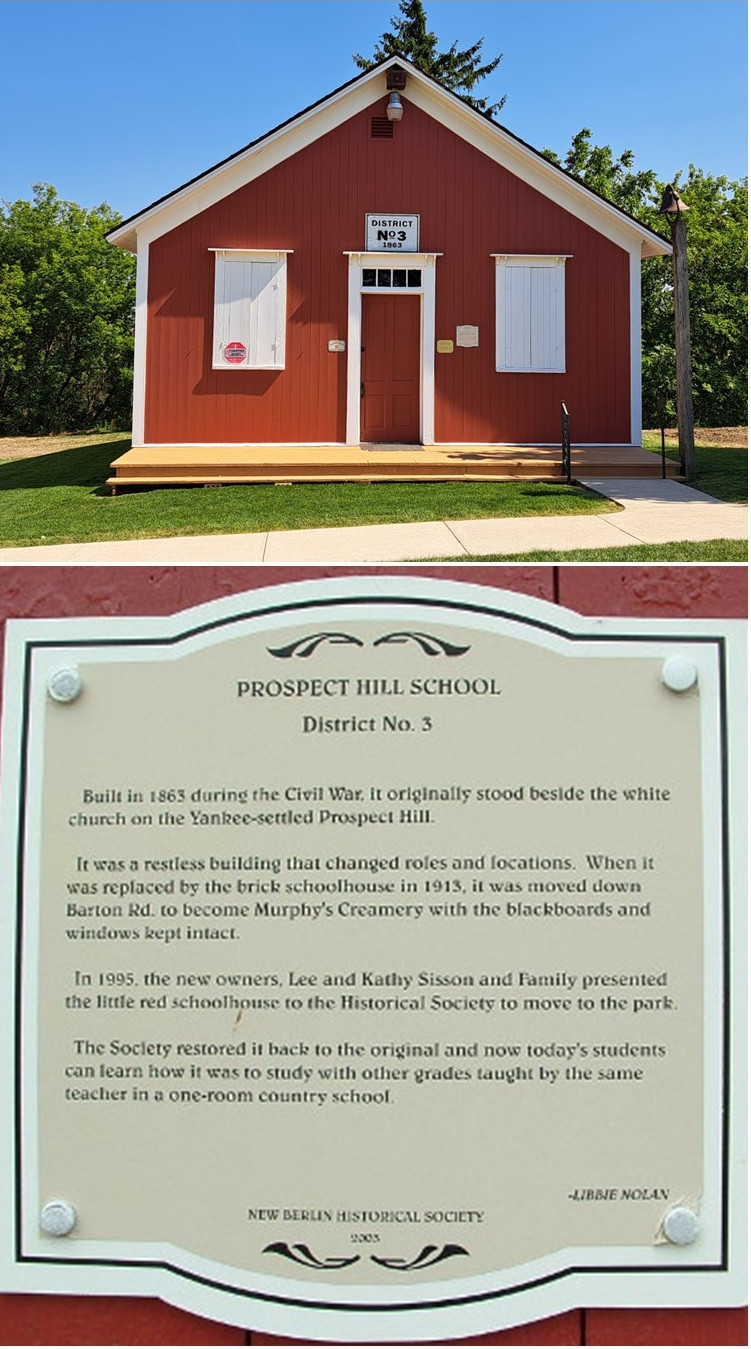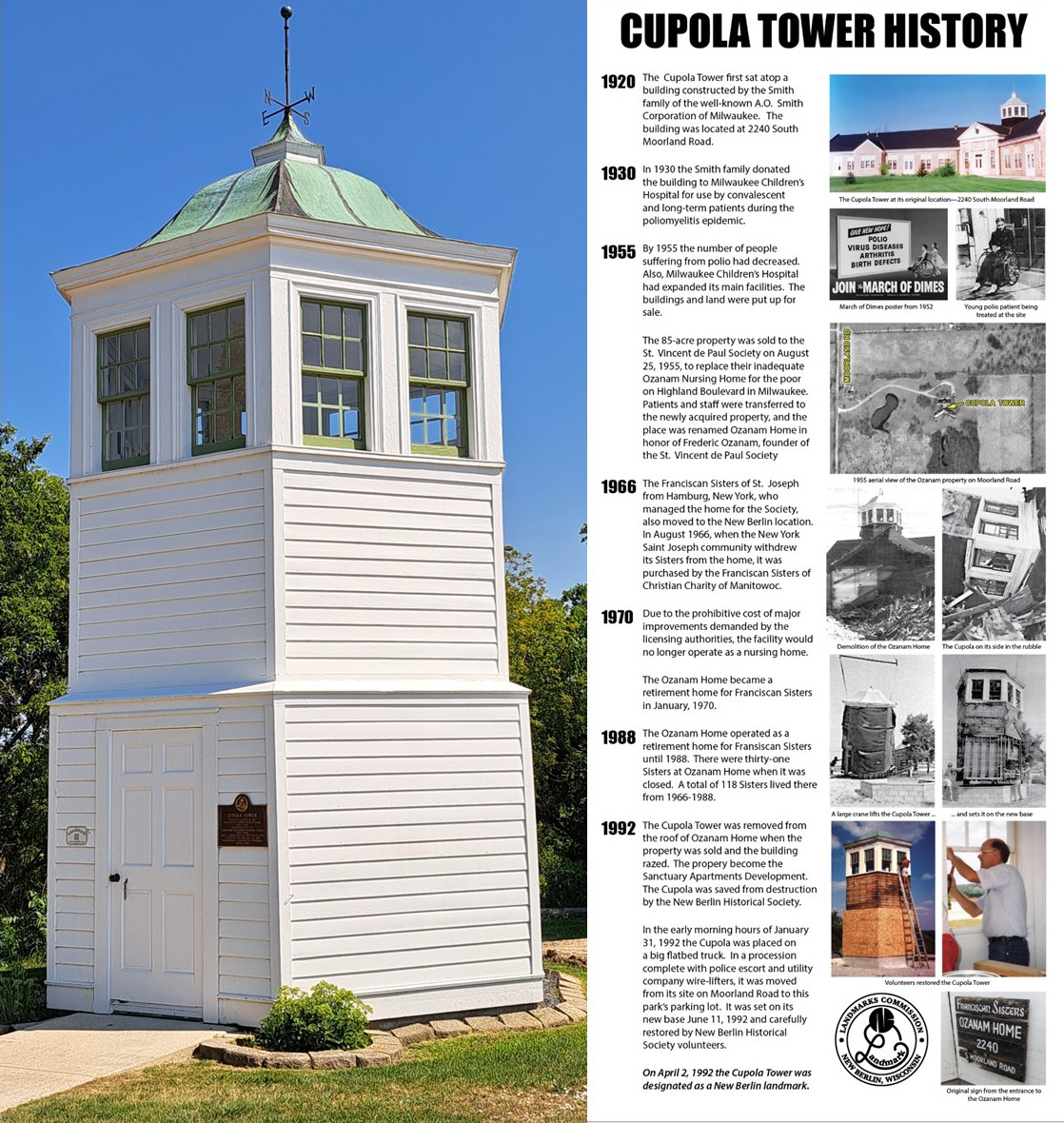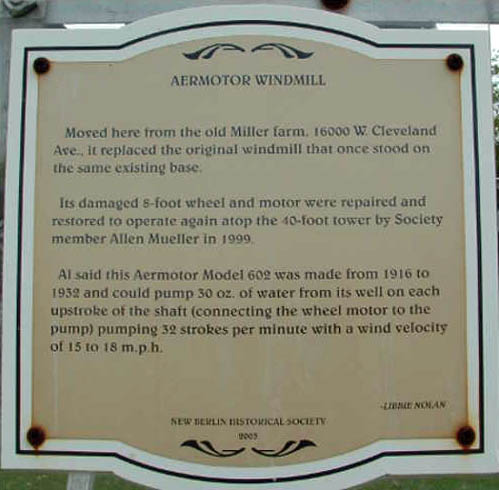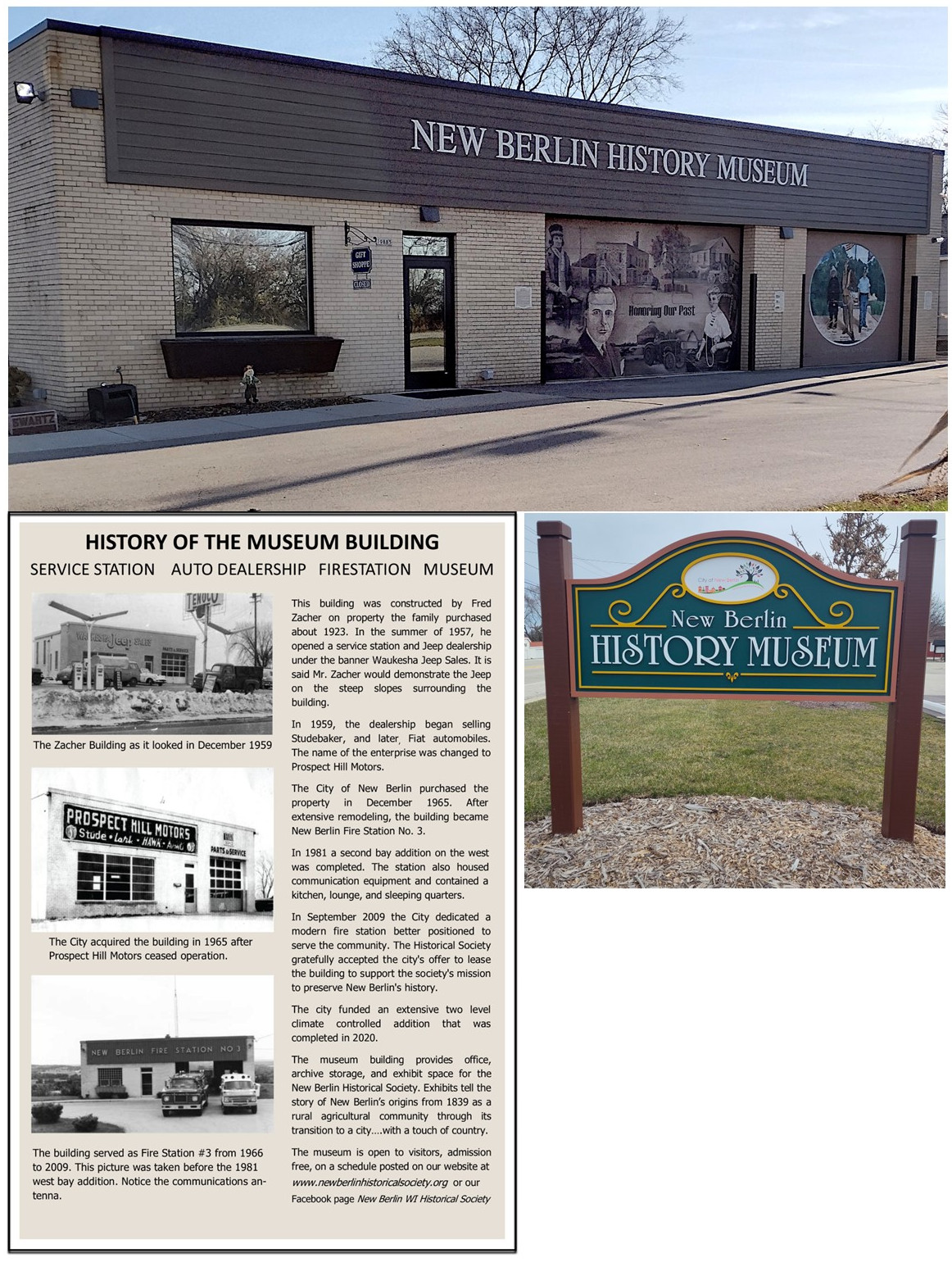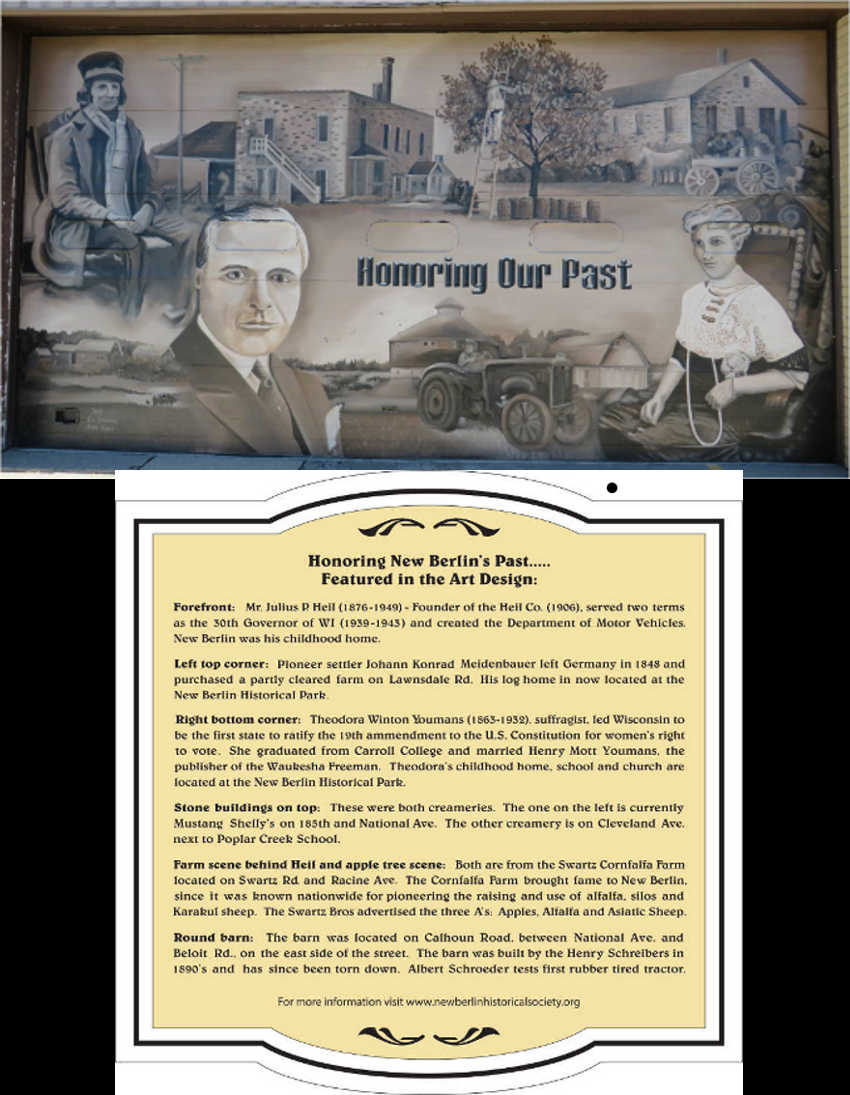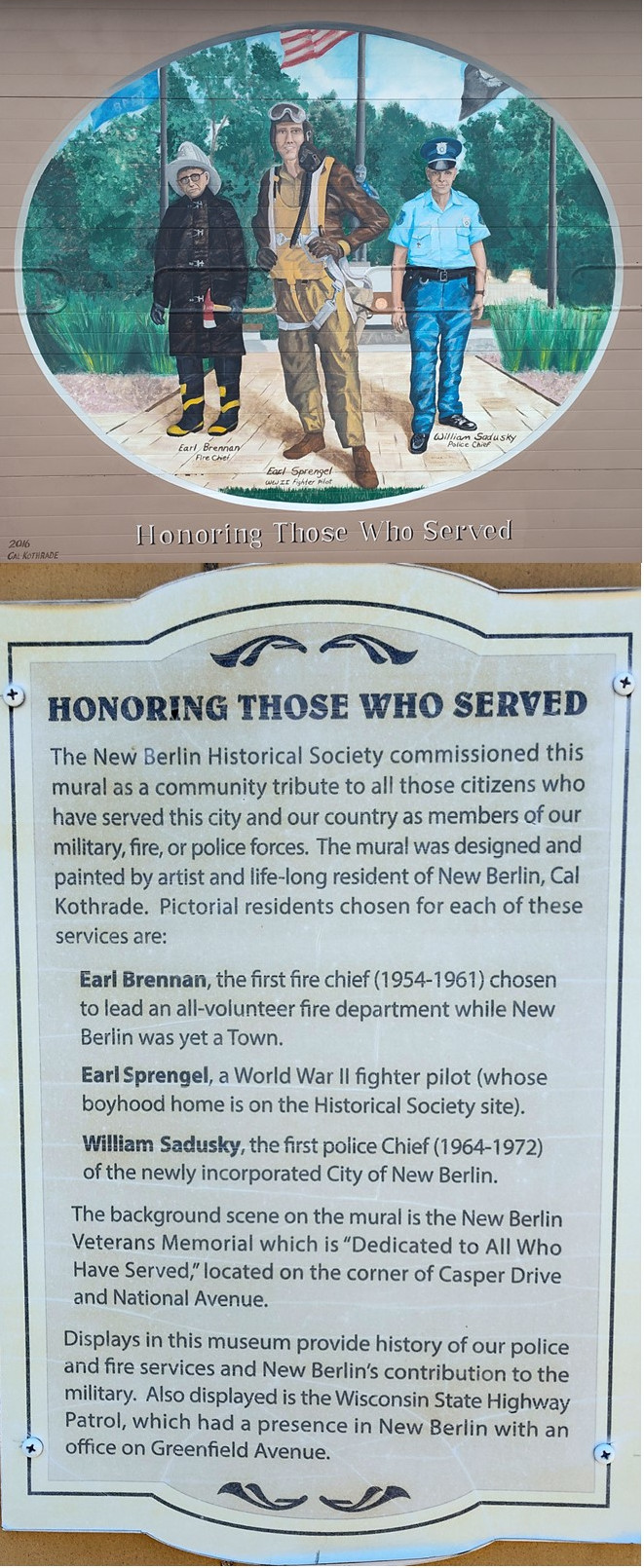Visitors to Historical Park can always tour the grounds and read the information signs attached to most buildings. The park is located in the Prospect Hill Settlement District thal also includes the former Freewill Baptist Church building and the Weston Antique Orchard. Images of both the buildings and information signs are shown below.

Above is a 2024 aerial view of Historical Park. The buildings in which the society maintains exhibits are, from left to right, Winton-Sprengel house, Winton-Martin house, Winton-Sprengel barn, school house, Meidenbauer log house, cupola, and the New Berlin History Museum

Accross the street is the Weston antique apple orchard grounds and buildings as well as the former Freewill Baptist church building.
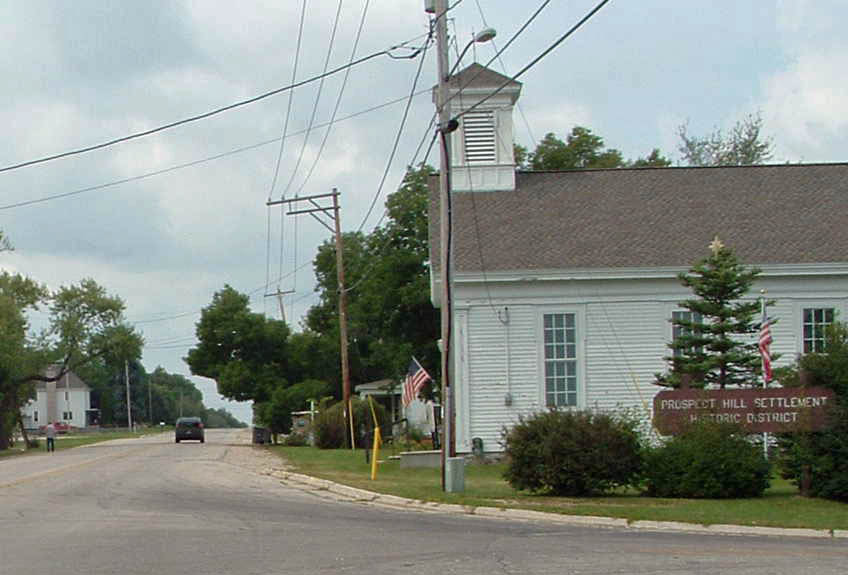
From the east the visitor's first view is the 1859 Freewill Baptist church building. Historical Park is just across the street.
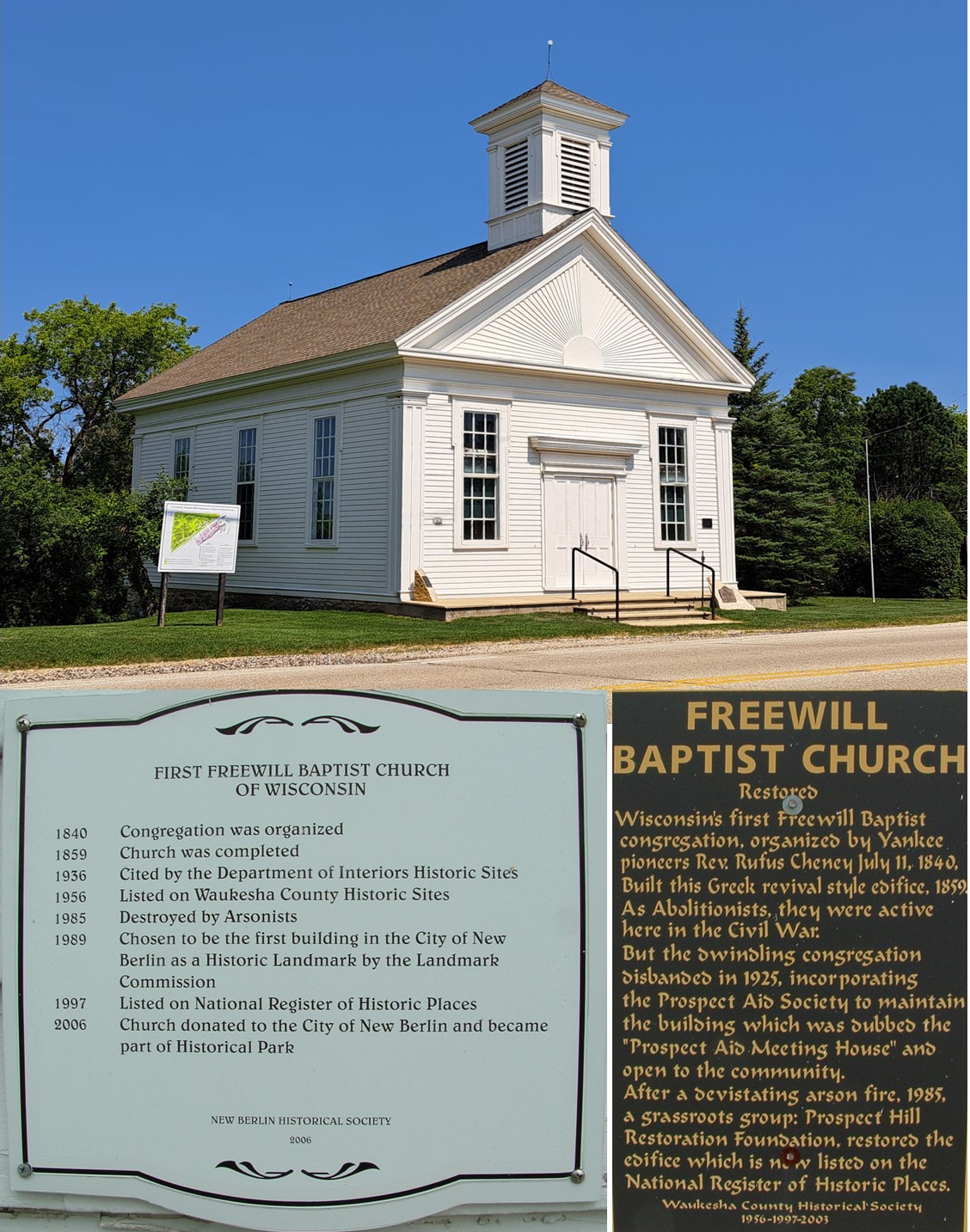
The Church building is open to visitors at Open House events and special tours. It contains exhibits relating to its history. Artifacts include the original bible that survived the fire, original reed organ (and two others).

Alice Westin Memorial Garden
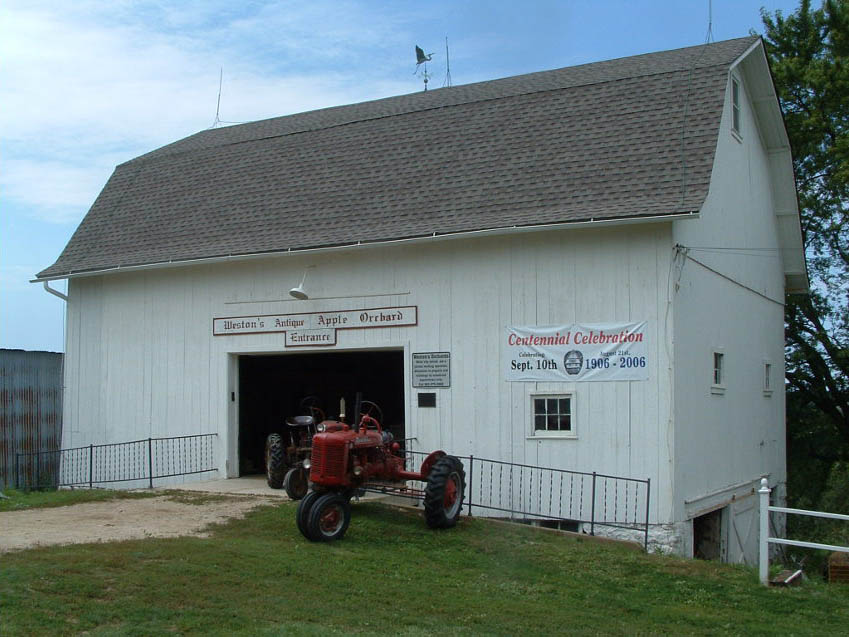
WESTON BARN and ORCHARD HISTORY
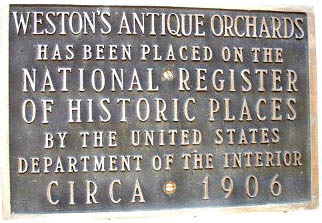 This bank barn was built in 1906 by George Koeffler. The two foot thick basement walls are constructed of field stone and mortar. The upper frame is mortise and tenon beam construction. Evidence suggests livestock was housed below, and hay and grain stored in the upper level.
This bank barn was built in 1906 by George Koeffler. The two foot thick basement walls are constructed of field stone and mortar. The upper frame is mortise and tenon beam construction. Evidence suggests livestock was housed below, and hay and grain stored in the upper level.
Mr. Koeffler also built the farm house. Emma Korn owned the firm until 1917. The farm of only 10 acres passed through several hands between 1917 and 1927, when Otto and Minnie Hertel acquired it.
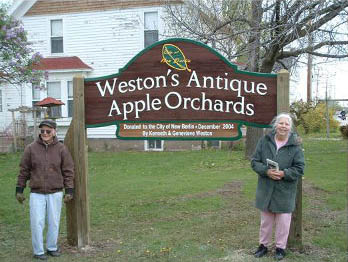 In 1928, the Marckwardt/Weston family moved to the farm. William Marckwardt bought the farm in 1931. His daughter, Alice Weston, inherited the farm from his estate in 1949.
In 1928, the Marckwardt/Weston family moved to the farm. William Marckwardt bought the farm in 1931. His daughter, Alice Weston, inherited the farm from his estate in 1949.
The main use of the barn's basement by the Marckwardt/Weston family was as an aluminum/brass foundry. The company produced barrel stands and was named "Waukesha Metal Products Co." with William Marckwardt's brother, Henry, as President and Harvey Weston as Vice President. After several years, the company dissolved and the barn was used as storage.
As the apple orchards planted by the Marckwardt family began to produce in 1944, the barn's basement became an apple cooler and the main floor of the barn was used to store orchard machinery. The barn remains in active use today for the orchard operation and occasional barn dance. The Weston's donated the property to the City of New Berlin in 2004, but they retain the right to operate the orchard. They grow over 150 varieties of heirloom apples and other fruits. Visitors are welcome.
